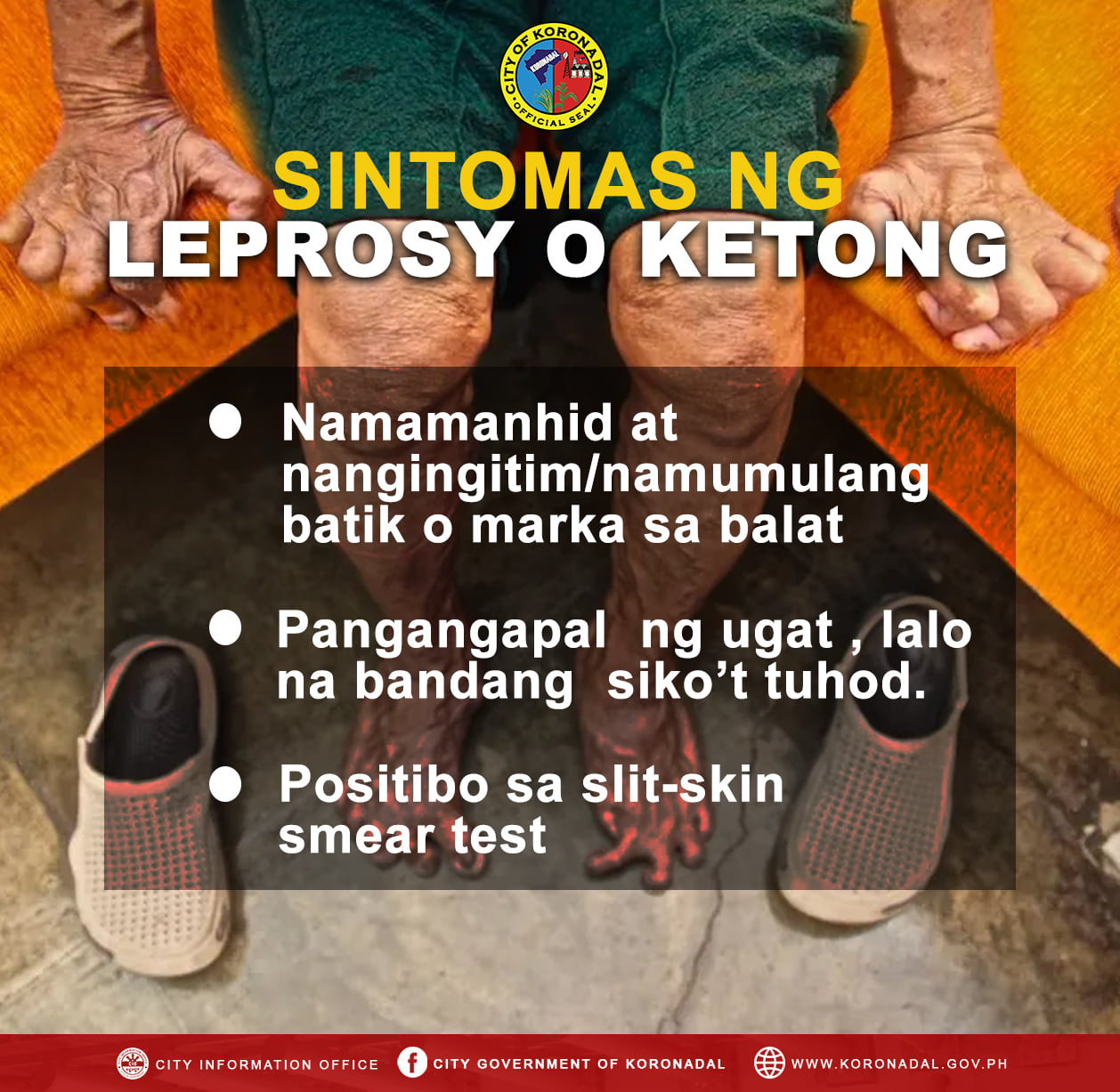Koronadal’s zero leprosy case campaign continues

Despite the fact that the City of Koronadal have already zero cases of leprosy in December 2020 after four (4) patients have been cured, the City Health Office (CHO) continues to campaign against it. Its goal is to completely eradicate the said illness from the city.
As part of the campaign, Public Health Nurse II and National Leprosy Controlled Program Coordinator (NLCPC) Susan Hilajos is urging all city residents with skin disorders to visit the health center right away to avoid aggravating the condition and receive appropriate treatment. She stated that there is no vaccine for leprosy and no medication that can be purchased in pharmacies because it is only available in public health facilities.
As part of the protocol, the NLCPC also encourages those who are concerned to seek a referral to their respective Barangay Health Worker (BHW).
Hilajos also collaborated with the BHWs of 27 barangays to seek assistance in referring former leprosy patients’ house contacts as part of a case-finding study. She explained that anyone who contracted leprosy would need to be checked and monitored for five (5) years to ensure that no one in their physical circle was infected.
According to the program coordinator, leprosy is a chronic infectious disease caused by the bacillus Mycobacterium leprae, which is related to tuberculosis (TB). It is most common in poor areas due to overcrowding and poor nutrition. Its symptoms include skin nodules, thick, stiff, or dry skin, painless ulcers on the soles of the feet, and painless swelling or lumps on the face or earlobes and loss of eyebrows or eyelashes.
The incubation period for leprosy is very long, lasting up to ten years depending on the person’s immune system.
Regardless of the aforementioned indications, Hilajos made it clear that leprosy should not be feared because it is already treatable, and after two (2) weeks of treatment, it can no longer be contagious, though medical care can last up to a year.
Furthermore, such disease can be avoided by living a healthy lifestyle that includes eating nutritious foods like fruits and vegetables, exercising regularly, and abstaining from any form of vice. Practicing physical cleanliness by using anti-bacterial soap may also be beneficial.
The city took part in the celebration of leprosy awareness week, which was themed “Kiskis Kilatis Program, Hamis Kutis para sa Tanan,” with the goal of keeping zero cases of leprosy in the city.
Koronadal’s leprosy prevalence is currently less than one case per 100,000 individuals and there has been no relapse in a long time.
PHOTO BY: https://www.theguardian.com/healthcare-network/gallery/2018/jan/26/tackling-leprosy-in-the-philippines-in-pictures